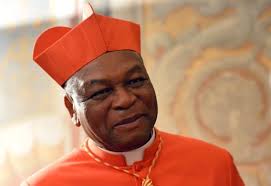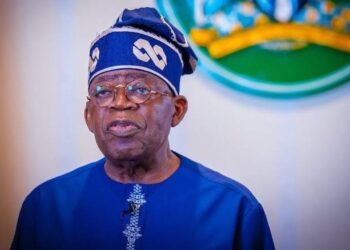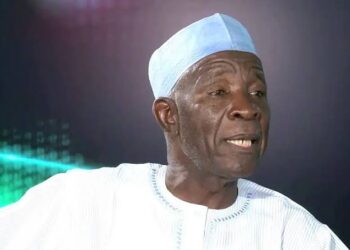The Minister of State for Defense, Bello Matawalle, has initiated a N60 billion defamation lawsuit against two northern journalists, Shu’aibu Mungadi and Tijjani Ramalan, alongside their employers and affiliated media platforms. Matawalle, who is also the former governor of Zamfara State, alleges that the journalists and their media outlets have engaged in a sustained campaign of defamation, accusing him of sponsoring banditry in the north-west region of Nigeria.
Filed in the Kano State High Court, Bichi Division, under suit number K/M2102/2024, Matawalle’s case targets six defendants, including Vision Media Services Ltd., Vision FM, Farin Wata Television, and Liberty Radio and TV. The minister is seeking N10 billion in damages from each defendant for the alleged malicious and false reporting. He also requests a 10% post-judgement interest on the entire sum until it is fully paid.
In an affidavit supporting the motion for an interlocutory injunction, Masudu Abdulkadir, Matawalle’s personal assistant, detailed the accusations. He claimed that since January 2024, the defendants have been broadcasting, posting, and spreading defamatory content about Matawalle through their media channels, both online and offline. According to Abdulkadir, these media platforms, helmed by Mungadi and Ramalan, have portrayed Matawalle as a sponsor of banditry and kidnappings in Zamfara and other North-Western states.
The affidavit further states: “The plaintiff, during his tenure as the governor of Zamfara State, worked tirelessly to combat insecurity. However, the defendants have been airing false, libellous, and injurious statements, damaging his character and reputation. These broadcasts and postings have been disseminated across various states, reaching a wide audience, including online viewers globally.”
Matawalle’s legal team, led by Umar Said of Umar and Umar Chambers, has filed a motion for an interlocutory injunction to halt further defamatory broadcasts by the defendants. They have requested the court to issue an order restraining the defendants and their affiliates from making further statements or reports related to Matawalle, pending the outcome of the lawsuit.
The motion also calls for the court to declare that the accusations made by the defendants from January 2024 to the present constitute defamation, damaging Matawalle’s character and reputation. In addition to the financial damages, the plaintiff is seeking a public apology from the defendants. This apology, as requested, would need to be prominently published in two newspapers, one local and one with nationwide circulation, and should include a full retraction of the defamatory statements.
The court has scheduled the case for hearing on December 12, 2024.
Matawalle’s lawsuit comes on the heels of mounting pressure from political figures and groups within his party, the All Progressives Congress (APC). Recently, the Akida Forum, a faction within the APC, staged a protest at the Department of State Services (DSS) headquarters, demanding a thorough investigation into Matawalle’s alleged ties with bandits. The group has called on the DSS to independently verify these claims, suggesting that such an investigation would clarify the minister’s role in the escalating insecurity in the North-West.
Zamfara State’s current governor, Dauda Lawal, has also publicly urged Matawalle to resign from his ministerial position, asserting that his alleged connections to banditry undermine his role in the federal government. Governor Lawal claimed to have reported Matawalle to both the National Security Advisor and President Bola Tinubu, presenting evidence to substantiate his allegations.
Lawal’s call for resignation adds another layer to the public controversy surrounding Matawalle. The governor has repeatedly emphasized the need for transparency and accountability, especially given the increasing insecurity in Zamfara State. However, Matawalle has consistently denied any involvement with bandits, dismissing the accusations as politically motivated attempts to tarnish his reputation.
The escalating tensions between Matawalle and his critics have drawn significant attention, as the allegations strike at the core of the security challenges faced by Nigeria’s North-West region. The region has been plagued by violent banditry, kidnappings, and attacks on communities, causing widespread fear and displacement. Accusations of political figures being involved with bandit groups have become increasingly common, exacerbating the already volatile situation.
Matawalle’s defamation suit is seen by some observers as an attempt to clear his name and push back against the growing narrative linking him to criminal activities. Legal experts suggest that the outcome of this case could have broader implications for the political landscape in the region, potentially influencing public perceptions and political alliances ahead of future elections.
Despite the allegations, Matawalle has maintained his innocence, reiterating his commitment to fighting insecurity during his tenure as governor. He has described the lawsuit as a necessary step to protect his reputation from what he terms as unfounded and damaging accusations.
As the legal battle unfolds, the case is likely to keep the spotlight on the intricate connections between politics, media, and security issues in Nigeria. The upcoming court proceedings will be closely watched, not only for their implications for Matawalle’s political career but also for the precedent they may set regarding the accountability of media outlets and the legal boundaries of defamation in Nigeria.



































